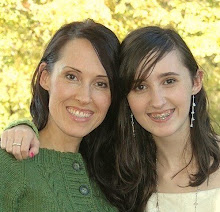
or
a sheep dog puppy and one of the fold
(This photo reminded me of a dream I had recently
where our mutt of a terri-poo turned into a beautiful border collie. I wish!)
Lately I've been very intrigued with discovering the Biblical way to "do" church. Why? I really don't know exactly. Part of me wonders if the typical way it's done is the way that's best.
I always thought a church needs a good strong leader (singular), but what I'm beginning to think is that it needs good strong leaders (plural), who uplift, carry, challenge, and protect each other and the community, with the community reciprocating the same.
In no way am I diminishing the role of the teachers! Perhaps that's why the Bible singles them and other extra hard working elders out as being "worthy of double honour". I'm willing to bet it takes a lot of meditating, studying, and praying to teach the Word to the people, especially if your heart's cry is to teach in tune with God, conveying what He wants to convey.
“Let the elders who rule well be considered worthy of double honor, [meaning compensate them monetarily], especially those who work hard at preaching and teaching.” ~ 1 Timothy 5:17 (NASB)Through Google Book Search, I found a book called "Discourse on the Official Relations of New Testament Elders”, written by John M. Duncan, a Presbyterian pastor. The book was published in 1826. Originally, it was a discourse delivered to his community as a "service preparatory to the ordination of four elders, who were, there and then, ordained according to the principles therein exhibited." It was expanded and revised for the public at the request of the elders of that church.
His view of church leadership was based on scripture, where the New Testament churches were taken care of by overseers, or elders. I haven't found anywhere where it says local communities were led be one pastor/shepherd. It seems downright irrational and unfair to expect pastors to be all things to all people.
Paul and Barnabas appointed elders [plural] for them in each church and, with prayer and fasting, committed them to the Lord, in whom they had put their trust. ~ Acts 14:23 (NIV)Here's what Duncan had to say:
God has not created offices in his house to afford to one man an opportunity to grow more important than another man; but to furnish every one with an occasion of doing all the good he can: and each minister, instead of growing supercilious because of his official distinction, might say with Moses, "would God that all the Lord's people were prophets, and that the Lord would put his spirit upon them."These are not "support roles". Overseer's jobs are to shepherd the flock, just as the preacher/teacher. No one is meant to bear the burden alone. All elders are called to feed, care for, and protect the flock.
Now, you know that congregations ask their preachers to do a very great deal. They must preach twice or thrice on the sabbath, and, perhaps, two or three times in the week; they must visit the sick; bury the dead; .....and submit to every intrusion which the public at large shall conclude their supposed influence may warrant. Can human beings accomplish all this? Are flesh and blood equal to the task? Must not the preacher neglect the pulpit in order to answer these various calls?
Under all these views, it appears to me, that, while the preacher is taken from among the elders to expound the scriptures and conduct the public services of the sanctuary, they in their places are called to discharge whatever belongs to parochial visitation.
But here it may be necessary for me to state, that I am not seeking a retreat for myself, nor expressing any intention to decline my usual parochial services.....Yet whatever I may do, or may not do, your elders are called upon, by the Word of God, to exhort, to comfort, to reprove, to warn, to pray, among you, as opportunities may occur, or your situation may demand.
Paul, in his exhortation to the elders of Ephesus, addresses, not a single elder, but a number. And he admonishes them as having a spiritual charge entrusted to them in common....Peter, in like manner, addresses, not an elder, but the elders [not only that but refers to himself as a fellow elder]; and he requires them to feed the flock of God, and cheerfully to take the oversight thereof.....Feeding the flock of God calls for much more than mere sanctuary services; and oversight is much more than mere preaching. Terms like these express full provision for the spiritual necessities of the church, that she may be edified, enlarged, sustained, refreshed. They include all that belongs to exhortation, prayer, watchfulness, consolation, warning, reproof, rule, &c. The elders must do all this, each one labouring in his own place, and according to his own ability; or, as the scriptures speak, some elders must preside well, and others must labour in word and doctrine. All are not intended to do the same thing, but a plurality exists to meet various wants.Duncan, in referring to the elders being ordained in his church, says this about them:
They consider themselves to be invested with spiritual functions, and called to render spiritual services. They may exhort you to duty; they may comfort you by unfolding the merits of our beloved Redeemer, and the precious promises of our covenant God; they may warn you of the fearful consequences of sin; they may pray with and for you; they may sustain a spiritual parentage to your children;—in a thousand ways they may be helpers of your joy, and companions in your sorrows. And all this may be done from the purest, the kindest, and the most magnanimous motives, and with an assiduity which cannot fail to be a blessing.Wow. Now, this is what he says to the church:
Now then, brethren, your duty is to "know them which labour among you, and are over you in the Lord, and admonish you, and to esteem them very highly in love for their work's sake." And again, I say, "obey them that have the rule over you, and submit yourselves; for they Watch for your souls, as they that must give account: that they may do it with joy, and not with grief; for that is unprofitable for you." It will be yours to receive them affectionately when they call upon you; to send for them when you are sick; to ask counsel of them when you need it; to converse freely with them of things divine; to listen in patience and love to their brotherly admonition; to bear them habitually on your hearts to the mercy-seat; and to afford them every facility in the discharge of their duties. What a glorious spiritual alliance is here! What a mingling of christian hearts! How well adapted the opportunity to a fine display of the social attributes of moral character! What tender sympathies, most happily elicited! These things never can be forgotten.Sounds like a huge responsibility no matter where you find yourself, but it also sounds healthy and full of promise.




4 comments:
Heidi,
Some great stuff there and you could tell he had sought the Lord for a fuller understanding of these matters. Of course we all know that there would be a strong need for everyone to be on the same page. Problems arise here with jelousy, and other issues unless it is governed tightly and all are in "one accord" of "one mind" and "one spirit". You still need a head, as Moses was and appointed those to govern over the others. I have agreed in this for a very long time, but then you have the matter, not all are equal in Christ, when you consider that 5 to 10 % of your people take the reality of walking with Christ very seriously. I learnt along time ago when teaching on prayer that many of the ones who I respected and were part of my fellowship did not take more than 15 min/day to seriously seek God and pray for others. (By survey) Then there is the matter of intercessors, about 1 or 2 per congregation and they are predominantly woman. Who are never really known either because they are hidden from plain sight. Also those supporting the work are few, so who will cary this burden. If we all work who has the time to really entreat God, IE: like the ones who are actually praying now!So the demographics are huge and knowing the heart of God for us and not walking in assumption are key when trying to change mind sets and so I feel that this would take much prayer. Obviously your author was a man of the word and prayer and humbled himself under other authority also. You did not say whether anything was accomplished.
I am intrigued that you are pressing into God and not just talking out of your own understanding; that would be dangerous.
On Sandford's book he did another follow up to that also, Elijah among us.
Love ya large
L.
(having trouble again with blogger)
Lawrence
I re-read the article and saw that this was in place. This says alot about simpler times and distractions around our life.
Since God is progressive, He could still assist us in making it work in our time.
L.
Hey, thanks L!!!! Especially for taking the time to contribute so much!
I agree that not everyone can work and minister. I'm convinced of that. I believe that God calls people to full time ministry and thus supports them to do so.
As for problems with jealousy, and church government, I think the New Testament is PACKED FULL of how that is to be handled and to keep things safe and healthy. If anything, I don't think the church has really grasped what good spiritual authority is or involves. It seemed to be abused, whether it's lording it over people, or there's no authority it all. Either way, it's an abuse of authority. I'm wanting for more accountability in the church.
So much to think about, pray about, and ponder!! I'm finding it all so fascinating!
I'll have to get that second Sandford book for sure.
Love from snowy NB!
Heidi
Forgot to comment on one thing you said L. It's the thing about Moses. The "Moses Model" is typically used to endorse the senior-pastor model. Moses was a type of Christ. We now have our High Priest in Christ! Now Jesus is our deliverer. He is the head, and we are a holy priesthood.
Anyways, blah blah blah...I know so very little, but I do know that many of us are shirking our responsibilities and are called to so much more.
As I said, fascinating stuff!
Post a Comment